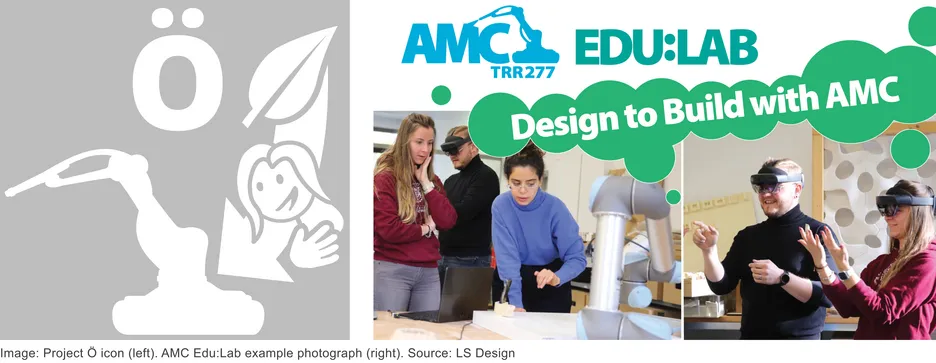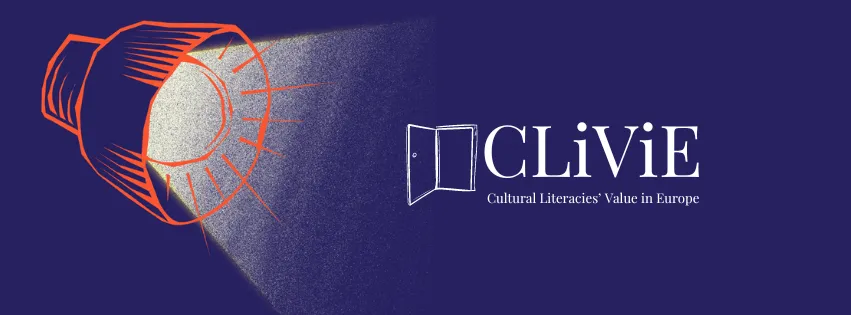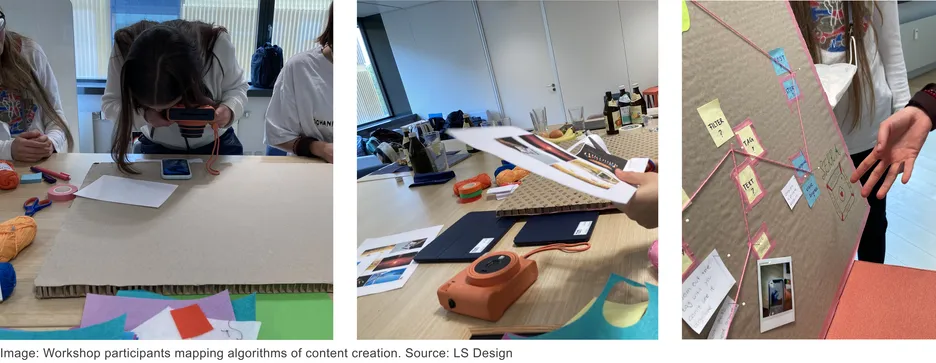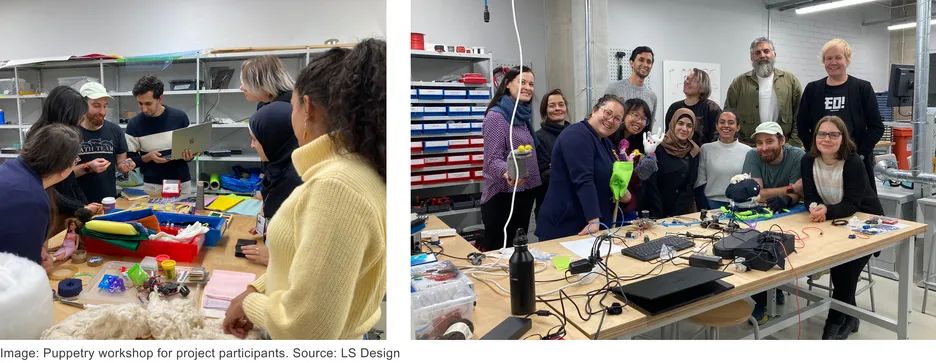Research Projects
Project Ö: Learning, Sustainability, Design: Gender-equitable introduction of additive manufacturing in construction (AMC) to the public

The project “Learning, Sustainability, Design: Gender-equitable introduction of AMC to the public” is part of the Collaborative Research Center Transregio 277 Additive Manufacturing in Construction. AMC TRR 277 researches innovative additive manufacturing methods, materials, and optimized designs and processes to increase sustainability in construction. These innovations will change the field of construction and its future toward digitalization, saving energy and resources while increasing productivity. The changes in the field will result in new job profiles with opportunities for closing the gender gap in construction.
To achieve this, it is vital to create opportunities for youth and the general public to engage with additive manufacturing in construction (AMC). The aims of the project “Learning, Sustainability, Design: Gender-equitable introduction of AMC to the public” are 1) to empower the next generation - especially young women and girls - to see themselves in and to shape the future of construction; 2) to facilitate learning about innovative AMC research; and 3) to raise awareness of the importance of sustainability in construction among all youth and other target groups. To achieve these goals, the project combines public relations work with learning sciences research to develop the AMC Edu:Lab, a learning space for active engagement with AMC research and innovation.
Project co-PIs
- Prof. Dr. Anna Keune, Assistant Professorship of Learning Sciences and Educational Design Technologies, TUM School of Social Sciences and Technology, Technical University of Munich
- Prof. Dr. Kathrin Dörfler, TT Professorship for Digital Fabrication, TUM School of Engineering and Design, Technical University of Munich
- Prof. Dr. Harald Kloft, Institute of Structural Design (ITE), Technical University University of Braunschweig
LS Design Research Staff
- Živa Simšič, TUM School of Social Sciences and Technology, Technical University of Munich
Funding: Deutsche Forschungs Gemeinschaft (DFG), AMC TRR 277
Duration: 2024 - 2027
Project website: https://amc-trr277.de/
Social media channel: Instagram
The Cultural Literacies’ Value in Europe

The Cultural Literacies’ Value in Europe (CLiViE) project is aimed at enhancing our comprehension of the significance of cultural literacy facilitated by arts-based education in fostering social cohesion. The project unfolds across four phases, starting with the meticulous mapping of arts-based education in diverse learning environments and across various stages of a young person's educational journey. Secondly, it will systematically evaluate the impact of arts-based education to help identify and assess its tangible outputs and outcomes. The project then values these activities, delving into the 'where,' 'when,' 'what,' and 'how' of cultural literacy development in different learning settings. Lastly, the CLiViE project practices pedagogies by innovatively developing materials and practices to support art-based educators in fostering social justice and inclusion. The project will help with understanding the impact of cultural literacy on social cohesion by creating a robust body of evidence supporting the value of arts-based education. Through the establishment of communities of practice and a professional development program for arts educators, the project aims to strategically commission activities that will amplify cultural literacy across Europe. The incorporation of an innovative methodology, including emotional cartography, not only facilitates data gathering but also empowers young people to articulate their perspectives, effectively fostering cultural literacy around European cultures.
Project PI
- Prof. Dr. Anna Keune, Assistant Professorship of Learning Sciences and Educational Design Technologies, TUM School of Social Sciences and Technology, Technical University of Munich
LS Design Research Staff
- Daniela Villarreal Bermúdez, TUM School of Social Sciences and Technology, Technical University of Munich
LS Design Student Assistant
- Katharina Sophia Pohl, TUM School of Social Sciences and Technology, Technical University of Munich
Coordinator: University of Helsinki
Duration: 2024 - 2027
Project website: https://www.clivieproject.eu/
Social media channels: Facebook, Instagram, LinkedIn

This project has received funding from the European Union’s Horizon Europe Research and Innovation programme under grant agreement No. 101132285.
Co-designing a Risk-Assessment Dashboard for AI Ethics Literacy in EdTech

This project responds to the rapid integration of AI-based technologies into education (AI EdTech). While the potential for improved learning outcomes is important, the emergence of AI in education also brings ethical and legal challenges, ranging from bias issues to threats to privacy. Decision-makers in the education sector currently grapple with these challenges, hindered by the absence of best practice guidance and specific legislation. To bridge this gap and support AI ethics literacy, the primary focus of this project is to develop practical guidance for decision-makers. This guidance aims to facilitate systematic and holistic management of ethical risks associated with the application of AI EdTech. The project employs interdisciplinary research questions, utilizing iterative and agile design-based methods. Collaboration with current decision-makers is a key element, allowing for the evaluation of outcomes through both qualitative and quantitative approaches. By addressing the challenges of AI EdTech ethically, the project hopes to empower decision-makers with the knowledge and tools needed to navigate the complexity of AI in education.
Project co-PIs
- Prof. Dr. Urs Gasser, Chair for Public Policy, Governance and Innovative Technology, TUM School of Social Sciences and Governance
- Prof. Dr. Anna Keune, Assistant Professorship of Learning Sciences and Educational Design Technologies, TUM School of Social Sciences and Technology, Technical University of Munich
- Prof. Dr. Matthias Grabmair, Professorship for Legal Tech, TUM School of Social Sciences and Governance
External Advisor
- Dr. Lis Sylvan, The Berkman Klein Center for Internet & Society, Harvard University
LS Design Research Staff
- Santiago Hurtado, TUM School of Social Sciences and Technology, Technical University of Munich
- Živa Simšič, TUM School of Social Sciences and Technology, Technical University of Munich
- Verena Kappes, TUM School of Social Sciences and Technology, Technical University of Munich
LS Design Student Assistant
- Maya Nakra, TUM School of Social Sciences and Technology, Technical University of Munich
- Santiago Forero, TUM School of Social Sciences and Technology, Technical University of Munich
Funding: Institute for Ethics in Artificial Intelligence (IEAI)
Duration: 2022 - 2025
Project website: https://www.ieai.sot.tum.de/research/co-designing-a-risk-assessment-dashboard-for-ai-ethics-literacy-in-edtech/
More information here.
Connected Algorithmic Learning Through Social Media

To address the gender imbalance in computer science, this project focused on fostering equitable opportunities for girls in algorithmic learning. It targets the intersection of computing and social media. Recognizing the significance of youth engagement on platforms like Instagram and TikTok, where millions create and share meaningful content, the project aims to leverage these practices to develop connected algorithmic learning. By translating girls' existing algorithmic and social media practices into tangible activities and design recommendations, the project creates a framework promoting gender-equitable computational learning opportunities. Building on the connected learning framework and the concept of algorithmic imaginary, the project explores how youth cultural practices on social media intersect with algorithmic opportunities for learning. Preliminary results suggest that integrating algorithmic thinking into common social media activities can raise awareness among both young people and educators, showcasing how personal actions influence platform behavior.
Project Lead
- Prof. Dr. Anna Keune, Assistant Professorship of Learning Sciences and Educational Design Technologies, TUM School of Social Sciences and Technology, Technical University of Munich
External Advisors
- Prof. Kylie Peppler, Professor of Informatics & Education, University of California, Irvine
- Prof. Jennifer Rowsell, Professor of Digital Literacy, School of Education, University of Sheffield
LS Design Research Staff
- Santiago Hurtado, TUM School of Social Sciences and Technology, Technical University of Munich
Funding: TUM Hochschule für Politik
The project is part of the Reboot Social Media Lab of the TUM Think Tank
Duration: 2022 - 2023
Project website: https://tumthinktank.de/project/connected-algorithmic-learning/
Tangible Computational Design for Learning

This project fosters participation in STEM+C contexts and introduces complex concepts to students through personally meaningful projects. The project is structured as a student-centered, project-based learning experience, encouraging participants to engage in guided activities within small groups. The emphasis is on tinkering and designing with the latest construction kits, incorporating state-of-the-art learning theory to create tangible computational experiences that support learning in STEM+C fields. The goal is to design a new format for teaching and learning at TUM for students from different backgrounds to gain expertise in the design of effective and equity-oriented Tangible Design Technologies for Learning. Through reflection on the design of educational technologies and recognition of underlying assumptions about learning, participants will develop an understanding of the impacts on learning outcomes and participation. The project aspires to attract students across various disciplines within TUM, including computing education, computer science, HCI, and research on teaching and learning, spanning both undergraduate and graduate levels.
Project co-PIs
- Prof. Dr. Anna Keune, Assistant Professorship of Learning Sciences and Educational Design Technologies, TUM School of Social Sciences and Technology, Technical University of Munich
- Prof. Dr. Tilman Michaeli, Professorship for Computing Education, TUM School of Social Sciences and Technology
LS Design Research Staff
- Santiago Hurtado, TUM School of Social Sciences and Technology, Technical University of Munich
LS Design Student Assistant
- Mitsou Palomino, TUM School of Social Sciences and Technology, Technical University of Munich
Funding: TUM Center for Study and Teaching
Duration: 2022 - 2023
Objects-to-design-with: Educational Design for Creating Equitable Engineering Learning

To address the imperative need to expand participation in engineering from an early age, this project highlights the unexplored terrain of approaches and tools for designing for future designers. Operating at the intersection of learning sciences and design, the initiative brings together the materiality of STEM learning and research-through-design. The planned activities encompass publicly open online talks, a puppetry workshop designed to comprehend opportunities for designing for designers, and collaboration with a puppetry expert. The choice of puppetry as a focal point is informed by prior research in the area and the potential it holds for fostering empathic engineering. The project's aim is to contribute to effective educational design technologies by producing proof-of-concepts. These concepts, tailored for both designers and educators, aim to create tangible opportunities for broadening participation in engineering, thus laying the foundation for a more diverse and inclusive future in the field.
Project co-PIs
- Prof. Teemu Leinonen (Cooperation Partner), Aalto Media Lab, Department of Media, School of Arts, Design and Architecture, Aalto University
- Prof. Dr. Anna Keune, Assistant Professorship of Learning Sciences and Educational Design Technologies, TUM School of Social Sciences and Technology, Technical University of Munich
LS Design Research Staff
- Santiago Hurtado, TUM School of Social Sciences and Technology, Technical University of Munich
- Verena Kappes, TUM School of Social Sciences and Technology, Technical University of Munich
LS Design Student Assistant
- Daniela Villarreal Bermúdez, TUM School of Social Sciences and Technology, Technical University of Munich
Funding: TUM Global Incentive Fund
Duration: 2022 - 2023